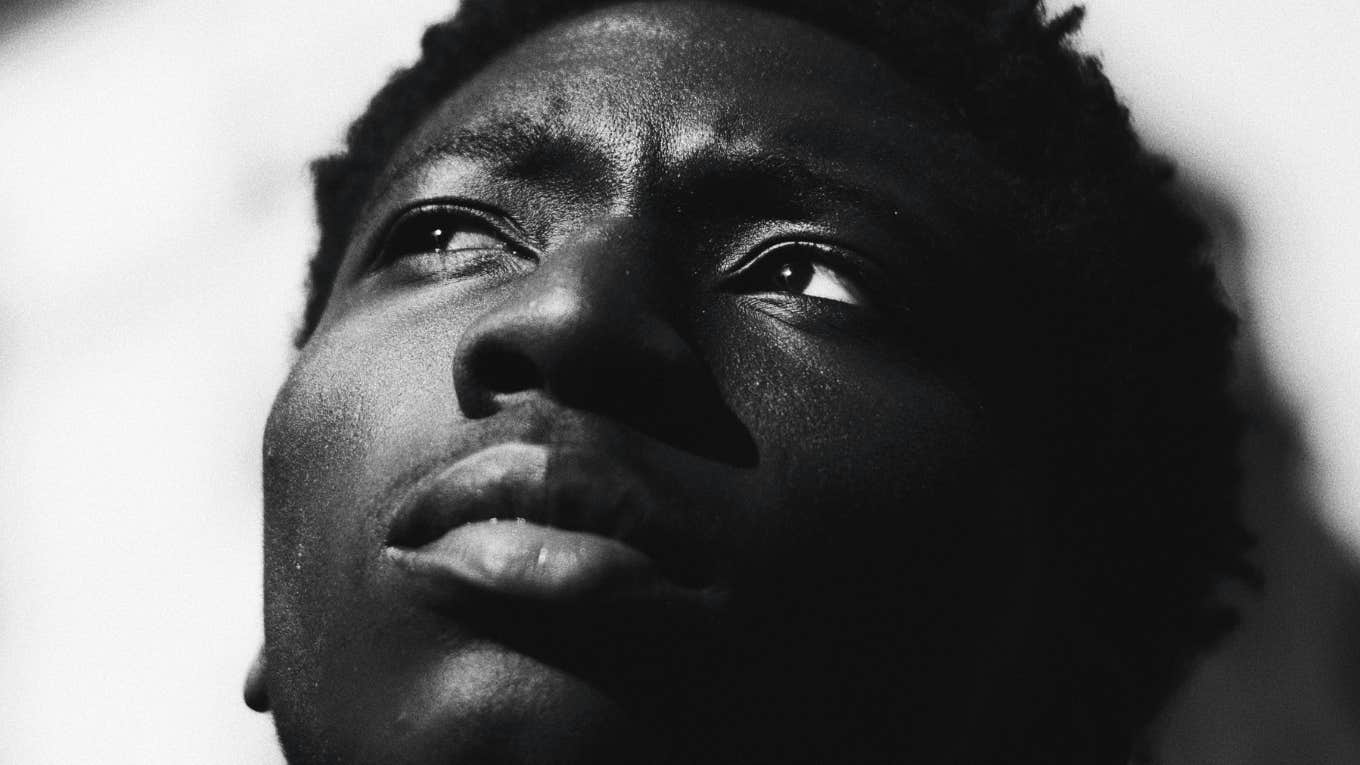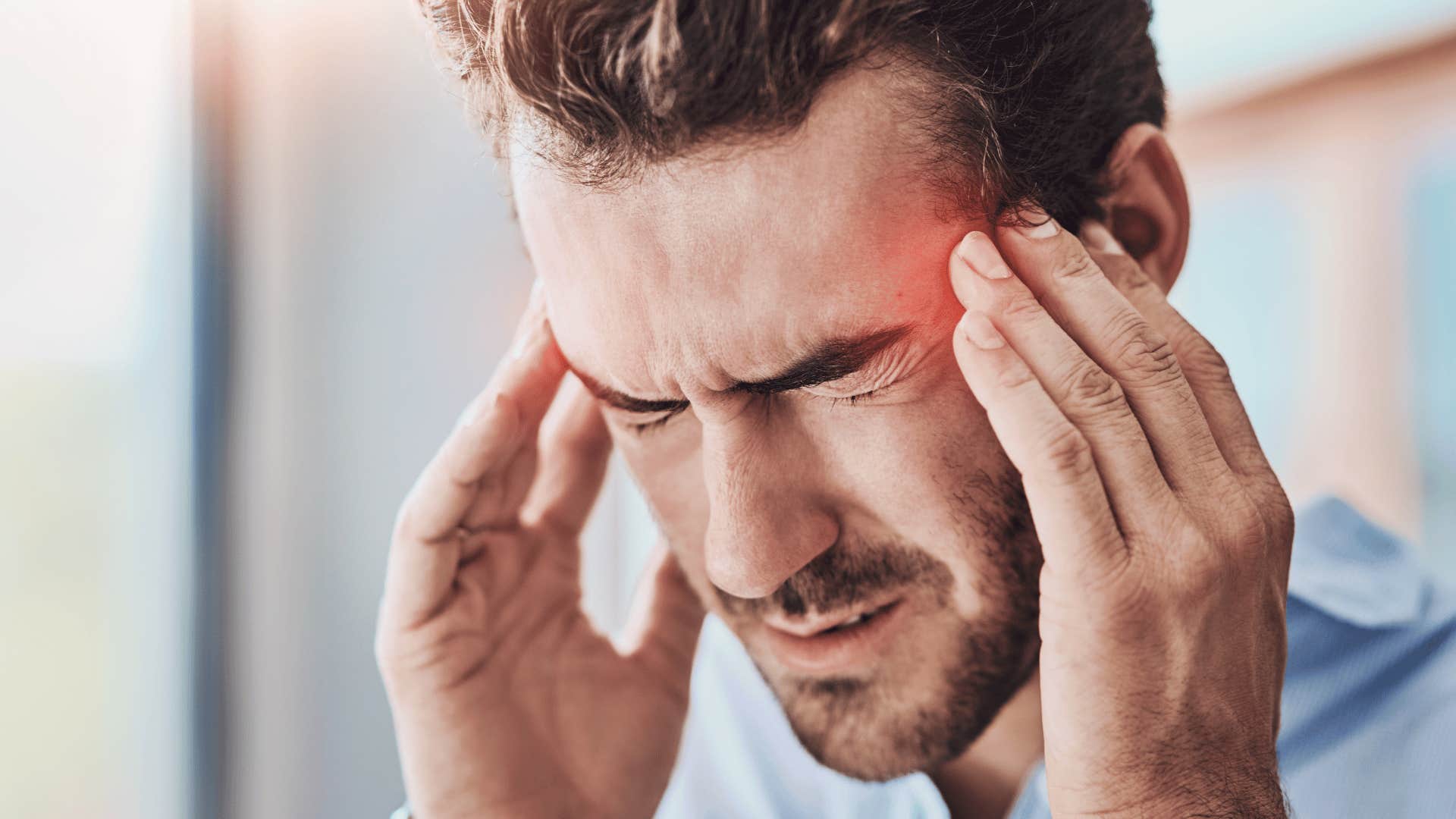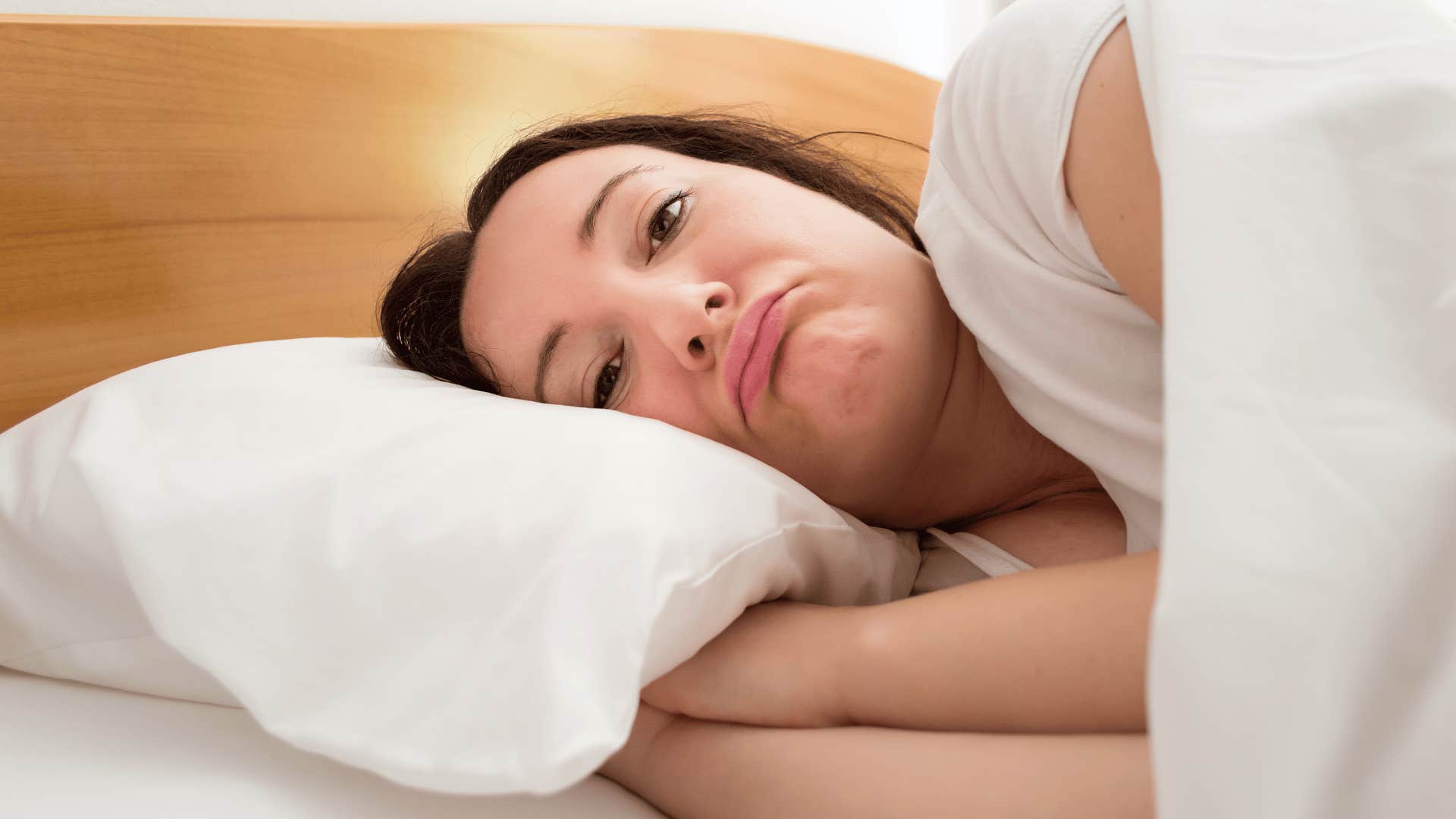7 Quiet Cries For Help From Your Body That Most People Don't Realize Are Depression
Your body may be warning you that something is off: you're depressed.
 Julian Myles | Unsplash
Julian Myles | Unsplash Most of us know the textbook symptoms of depression, like irritability, fatigue, and a feeling of sadness you just can't shake. But what about muscle aches, tummy troubles, or waking up before dawn?
Surprisingly, these can also be warning signs of depression — and if you're not sure whether your current funk is anything to worry about, these quiet cries for help from your body can help clue you in that something deeper is going on. There are a few lesser-known depression symptoms to look out for.
Here are quiet cries for help from your body that most people don't realize are depression:
1. Aches and pains
 Yuri A / Shutterstock
Yuri A / Shutterstock
If you went overboard in a CrossFit class, you know why your muscles are sore. But if you have nagging pain you can't explain, depression could be the cause. Backaches, muscle aches, and chronic pain flare-ups can all be a sneaky symptom.
"Pain is modulated by mood, and vice versa," says Padam Bhatia, MD, a psychiatrist and co-founder of the Center for Mind and Wellness in Miami. "Someone happy may not feel pain to the extent that someone with depression does."
2. Weight loss or gain
 Gladskikh Tatiana / Shutterstock
Gladskikh Tatiana / Shutterstock
Depression affects the hormones that regulate appetite, which means you could see the number on the scale start to move up or down.
"Hormones commonly disrupted by depression tell us when we are hungry and when we have had enough to eat," says Keith Humphreys, MD, a psychiatrist at Stanford Health Care. "As a result, many people with depression eat too much or too little."
Sleep issues associated with depression can compound the problem since a lack of sleep can mess with those same hunger and fullness hormones. There is a strong, bidirectional link between weight change and depression, meaning that both weight gain and weight loss can be associated with an increased risk of depressive symptoms.
Conversely, depression can also lead to changes in weight due to altered eating behaviors and activity levels. A study published by Trends in Endocrinology & Metabolism showed that individuals with obesity have a significantly higher likelihood of experiencing depression compared to those with a healthy weight.
3. Trouble staying asleep
 cunaplus / Shutterstock
cunaplus / Shutterstock
Although people with depression often experience fatigue and lack of energy, they may find it difficult to get a full night's rest.
"One of the classic symptoms of depression involves 'terminal insomnia'—waking up too early and not being able to get back to sleep," Bhatia says. "This can be very frustrating for patients, as sleep is sometimes the only refuge from debilitating depression."
And because lack of sleep can affect your mood and your ability to concentrate — which are also common symptoms of depression — it can kick off a vicious cycle.
4. Skin issues
 vijay solanki photography / Shutterstock
vijay solanki photography / Shutterstock
If you tend to break out when you're stressed, you already know stress hormones can wreak havoc on your skin. Depression is associated with elevated levels of the stress hormone cortisol, which may explain why it sometimes worsens conditions like eczema, psoriasis, and acne.
Bhatia says that one patient with a severe rash got better once she started on antidepressant medication — no skin creams necessary.
Research published in BMC Medicine established a significant link between skin issues like acne, eczema, psoriasis, and depression, indicating that individuals with visible skin conditions often experience higher rates of depressive symptoms due to factors like lowered self-esteem, social anxiety, and negative body image stemming from their skin concerns. This connection is powerful for obvious conditions on the face or other exposed areas.
5. Stomach issues
 Svetlana Khutornaia / Shutterstock
Svetlana Khutornaia / Shutterstock
Nausea, heartburn, constipation, and diarrhea have all been linked to depression — and the symptoms may be even worse for someone who also has an anxiety disorder. "The gut is exquisitely responsive to our mood states," Bhatia says. "In fact, there is a great overlap between depression and [conditions] like irritable bowel syndrome."
6. Cavities
 Depiction Images / Shutterstock
Depiction Images / Shutterstock
Depression can even take a toll on your oral health. An Australian study found that depression was associated with increases in tooth decay and tooth loss, possibly because this mood disorder can make everyday tasks more difficult.
"Depression often robs people of the ability to engage in self-care — for example, eating properly, managing chronic conditions, and taking care of daily hygiene including brushing and flossing teeth," Humphreys says.
Individuals experiencing depression are more likely to have untreated dental caries due to factors like poor oral hygiene practices, reduced dental visits, and a lack of motivation to maintain good oral health stemming from their depressive symptoms.
A 2024 study published by BMC Oral Health explained that depression can contribute to poorer dental care, leading to a higher cavity rate.
7. Migraines
 Antonio Guillem / Shutterstock
Antonio Guillem / Shutterstock
Much like chronic pain, headaches, and migraines are linked to depression in a chicken-or-egg sort of way.
"Not only can depression lead to headaches, but depression is also frequently seen in patients with migraine headaches," Bhatia says. The link is even stronger for those who experience migraines with aura (the flashing lights or stars some people see when they have a migraine).
Of course, headaches can occasionally be a sign of a serious medical condition, so don't automatically chalk it up to depression, especially if this symptom is new to you. Sudden vision changes, numbness, or a stiff neck should be checked out by a doctor right away.
If you or somebody that you know is experiencing a mental health crisis, there is a way to get help. Call SAMHSA’s National Helpline at 1-800-662-HELP (4357) or text "HELLO" to 741741 to be connected with the Crisis Text Line.
Kara Wahlgren is a freelance writer and editor specializing in health, entertainment, and personal finance. She has appeared in Yahoo Life, The Huffington Post, Cosmopolitan, and more.

